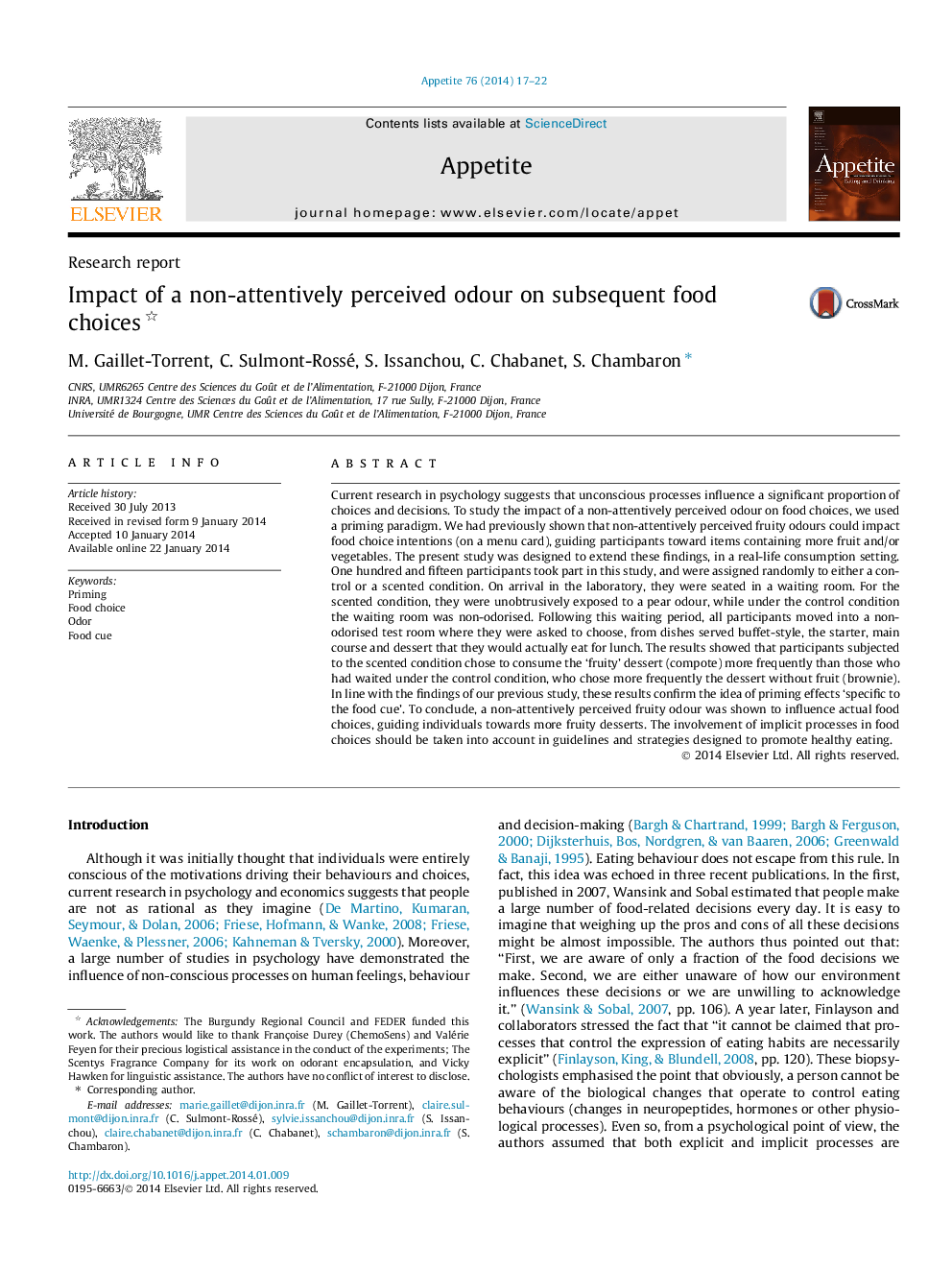| کد مقاله | کد نشریه | سال انتشار | مقاله انگلیسی | نسخه تمام متن |
|---|---|---|---|---|
| 939490 | 1475404 | 2014 | 6 صفحه PDF | دانلود رایگان |
• We use an implicit olfactory priming paradigm to study food choices.
• We examine if a fruity odour influences subsequent food choice.
• Incidental exposure to a pear odour increases the choices of a dessert with fruit.
Current research in psychology suggests that unconscious processes influence a significant proportion of choices and decisions. To study the impact of a non-attentively perceived odour on food choices, we used a priming paradigm. We had previously shown that non-attentively perceived fruity odours could impact food choice intentions (on a menu card), guiding participants toward items containing more fruit and/or vegetables. The present study was designed to extend these findings, in a real-life consumption setting. One hundred and fifteen participants took part in this study, and were assigned randomly to either a control or a scented condition. On arrival in the laboratory, they were seated in a waiting room. For the scented condition, they were unobtrusively exposed to a pear odour, while under the control condition the waiting room was non-odorised. Following this waiting period, all participants moved into a non-odorised test room where they were asked to choose, from dishes served buffet-style, the starter, main course and dessert that they would actually eat for lunch. The results showed that participants subjected to the scented condition chose to consume the ‘fruity’ dessert (compote) more frequently than those who had waited under the control condition, who chose more frequently the dessert without fruit (brownie). In line with the findings of our previous study, these results confirm the idea of priming effects ‘specific to the food cue’. To conclude, a non-attentively perceived fruity odour was shown to influence actual food choices, guiding individuals towards more fruity desserts. The involvement of implicit processes in food choices should be taken into account in guidelines and strategies designed to promote healthy eating.
Journal: Appetite - Volume 76, 1 May 2014, Pages 17–22
